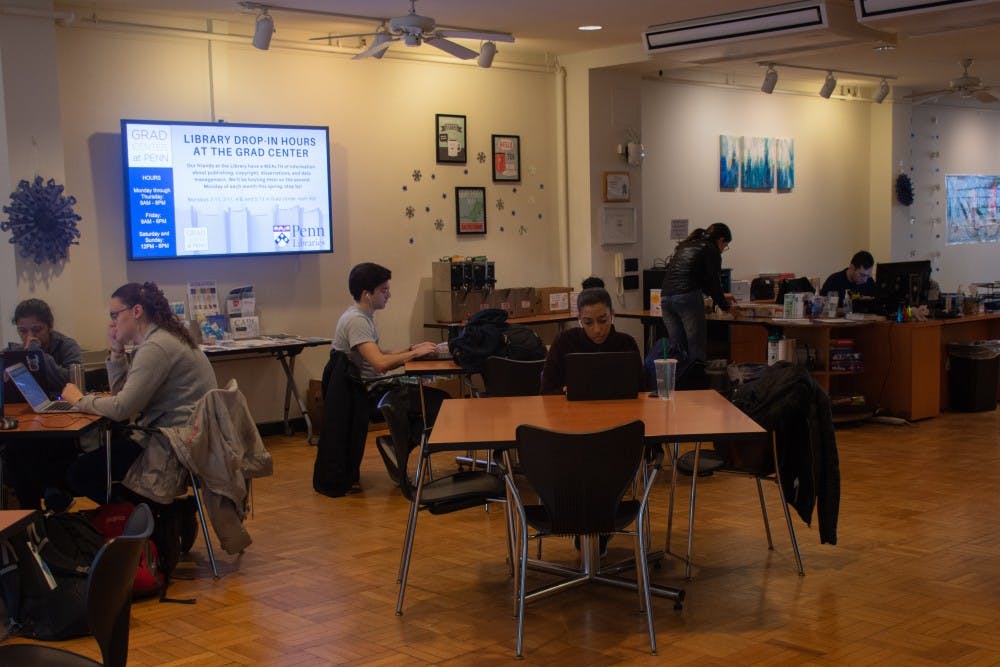Nearly a year after Penn published centralized guidelines outlining the expectations in advising relationships between faculty and Ph.D. students, graduate students say they continue to find faculty-student advising relationships difficult to navigate.
The guidelines, which aim to clarify inconsistencies in departments' respective handbooks, were established in spring 2018 when students and advisors brought concerns to administrators' attention about the unclear expectations both parties would play in the dissertation process.
Anita Mastroieni, executive director for Graduate Education and Initiatives, worked with graduate students from the Graduate and Professional Student Assembly to compile guidelines titled "Advising & Mentoring Ph.D. Students." The document covers topics such as choosing a dissertation advisor, conflict resolution, and seeking support and reporting concerns.
Using a 15-year-old graduate student handbook from Penn as a template, she worked closely with Graduate and Professional Student Assembly Vice President and chemistry Ph.D student Buyan Pan to draft AMPed based on a similar document released in 2002 from the University of Toronto.
Despite the centralization of Penn's expectations with graduate student advising relationships, few students say they think AMPed will significantly improve their experiences with their mentors.
Katie Pak, a fourth-year educational leadership graduate student, said she had not heard about AMPed. She said the handbook for her program “doesn’t have anything about navigating advisor relationships.” From her experience, there are several concerns with mentoring, which ranges from inadequate funding to being unable to contact professors.
Though AMPed points students to alternative conflict resolution avenues — such as the Office of the Ombuds, which is a resource for students, faculty, and staff who are experiencing difficulty in their work, education, or life on campus, according to its website — students said it is not worth potentially jeopardizing their relationship with their advisors.
GAPSA Chair for Student Life Matthew Lee, who is a fourth-year Nursing graduate student, said one of the biggest contributors to poor mental health among graduate students is the lack of support from advisors. Students completing GAPSA's mental health survey also wrote that they find the lack of support stressful.
Faculty advisors play a crucial role in their students' careers, such as writing recommendation letters and providing funding for graduate student research, GAPSA's Research Council Chair Greg Callaghan said. This leads to reluctance to confront issues in a mentoring relationship.
“It's kind of a system that disparages making complaints at any level,” said Callaghan, who is a fifth-year graduate student in Ancient History. “It's something that everyone is aware that is a problem, but there's not necessarily a possible solution" to address the issues without jeopardizing the students' careers.
"The relationship with your advisor really makes or breaks your whole Ph.D. experience," fifth-year bioengineering Ph.D student Mike Magaraci said regarding students in science.
While students are doubtful of AMPed's effect on mentoring relationships between faculty and graduate students, professors say the guidelines are helpful in outlining the responsibilities of the dissertation committee.
Rand Quinn, professor of education in the Graduate School of Education, said when he was hired as a professor, he only had guidance from a senior faculty member to learn how to be an advisor.
"A lot of it was learning on the job and reflecting on my experiences as a graduate student … and adopting those practices that were best in my own practice,” Quinn said.
School of Arts and Sciences Interim Associate Dean for Graduate Education Ralph Rosen said he has used AMPed to resolve cases to clarify the responsibilities of the student and the faculty member when forming a dissertation committee.
"There were some issues with interpersonal problems, which kind of spill over into intellectual dynamics,” Rosen said. “I have seen a couple times, where a student gets to the dissertation level and can't find an advisor because the person or people they were going to work with left unexpectedly, retired, or got sick."
In response to students’ wishes to remain anonymous when speaking about concerns and developing a good advising relationship with their advisors, Callaghan, Lee, and the GAPSA research council in conjunction with the Vice Provost for Education Office helped develop an online feedback form in January, where students in graduate groups that are being reviewed can submit their feedback anonymously. The feedback form was released by the Vice Provost for Education Office.
Lee said he hopes the form will encourage students to give more honest feedback and for the administration to identify common issues graduate students face.
“[AMPed] is a step in the right direction towards acknowledging that this is an aspect of the graduate education process that we need to be thinking about and talking about, but as its own [publication], I don’t know if it's going to move the needle much,” Callaghan said.
Correction: A previous version of the article incorrectly indicated graduate student groups released the feedback form when in fact they helped develop it. The DP regrets the error.









